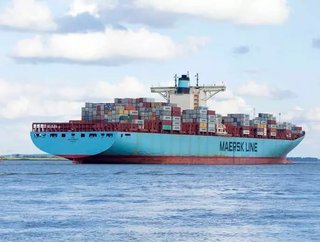IBM and Maersk establish blockchain-based supply chain company

Maersk and IBM have established a new company that will focus on utilising blockchain technology to improve companies’ supply chains.
The aim of the new company will be to offer a jointly developed global trade digitisation platform built on open standards and designed for use by the entire global shipping ecosystem.
In a statement, IBM said the joint venture will address the need to provide more transparency and simplicity in the movement of goods across borders and trading zones.
According to The World Economic Forum, by reducing barriers within the international supply chain, global trade could increase by nearly 15%, boosting economies and creating jobs.
The company will use blockchain technology to power the new platform, as well as employ other cloud-based open source technologies including artificial intelligence (AI), IoT and analytics, delivered via IBM Services, in order to help companies, move and track goods digitally across international borders.
Manufacturers, shipping lines, freight forwarders, port and terminal operators and customs authorities can all benefit from these new technologies – and ultimately consumers.
“This new company marks a milestone in our strategic efforts to drive the digitisation of global trade. The potential from offering a neutral, open digital platform for safe and easy ways of exchanging information is huge, and all players across the supply chain stand to benefit,” said Vincent Clerc, chief commercial officer at Maersk and future chairman of the board of the new joint venture.
“By joining our knowledge of trade with IBM’s capabilities in blockchain and enterprise technology, we are confident this new company can make a real difference in shaping the future of global trade.”
SEE ALSO:
-
MState blockchain accelerator wins backing from IBM and Comcast
-
Microsoft and GlaxoSmithKline among companies involved in Viant blockchain programme
IBM's blockchain platform is enabling hundreds of clients and thousands of developers to build and scale active networks across complex use cases, including cross border payments, supply chains, and digital identification.
“The major advances IBM has made in blockchain have shown that the technology can foster new business models and play an important role in how the world works by building smarter businesses,” said Bridget van Kralingen, senior vice president, IBM Global Industries, Solutions and Blockchain.
“Our joint venture with Maersk means we can now speed adoption of this exciting technology with the millions of organisations who play vital roles in one of the most complex and important networks in the world, the global supply chain. We believe blockchain will now emerge in this market as the leading way companies seize new untapped economic opportunities.”
IBM and Maersk began a collaboration in June 2016 to build new blockchain- and cloud-based technologies.
Since then, multiple parties have piloted the platform including DuPont, Dow Chemical, Tetra Pak, Port Houston, Rotterdam Port Community System Portbase, the Customs Administration of the Netherlands, U.S. Customs and Border Protection.






